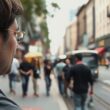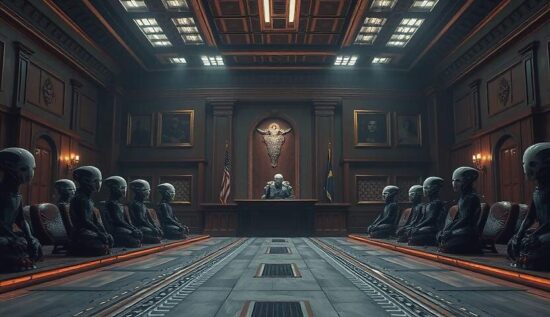In December 2022, the German Federal Prosecutor’s Office launched an investigation into 25 suspected members and supporters of a terrorist organization, leading to the arrest of 25 individuals in 11 German states. The accused, part of the so-called “Reichsbürger” scene, were charged with planning a coup and forming a terrorist organization.
According to the prosecution, the group had planned a violent attack on the German parliament building in Berlin and had collected around half a million euros and a “massive arsenal of weapons” for the purpose. The General Prosecutor, Peter Frank, stated that the group aimed to eliminate the existing state order in Germany, the free and democratic constitutional order, using violence and military means.
The accused face long-term prison sentences if convicted. A total of 27 men and women were charged and the trial was split into three separate cases in different high courts. The main trial in Frankfurt, Germany, began on May 21, 2024, with the alleged leader of the organization, who styles himself as Heinrich XIII, Prince Reuss, among the defendants.
The legal publication, Legal Tribune Online, described the Frankfurt trial as a “mammoth case.” A new hall was built in Sossenheim, a suburb of Frankfurt, to accommodate the trial, which offers 1,300 square meters of space. According to the court’s spokesperson, Gundula Fehns-Böer, it is the largest trial in the history of the Frankfurt High Court.
From the start, the media has closely followed the trial, with the Bavarian Broadcasting Corporation stating in May 2024 that it would likely be one of the most exciting trials in recent German history, as it involves the planned violent overthrow of the federal government.
In an interview with RT, Dirk Sattelmaier, a defense lawyer, commented on the trial in Frankfurt.
RT: What is the focus of the trial in Frankfurt?
Sattelmaier: The “Political Arm” of the alleged organization is on trial in Frankfurt, meaning the nine people on the indictment list who, according to the prosecution, were supposed to take over the country after the alleged coup. For example, Prince Reuß was supposed to be installed as the new head of state, according to the indictment.
In contrast, the “Military Arm” is being tried in Stuttgart. In essence, it’s all about the same core question in all three trials: Did the accused form a terrorist organization in the sense of Section 129a of the German Criminal Code?
Are there any concrete evidence to support the accusation of a terrorist organization and a plot to overthrow the state?
As a defense lawyer, I can only evaluate the evidence presented so far in Frankfurt. After 47 trial days, the picture is chaotic, with very thin evidence. However, one thing seems clear: the majority of the accused believed that the alleged “Alliance” would take over, regardless of the will and influence of the group.
The accused believed that the “Alliance” would intervene and they wanted to “apply” to be the “chosen ones” who would then decide the chaos. It sounds bizarre and it is. Some of the accused did not only believe in an “earthly” alliance but also in the involvement of “galactic” beings. We have yet to gain any significant insights into the alleged plot to storm the Reichstag in the evidence presented so far.
How do you assess the trial days in Frankfurt on Tuesday and Wednesday?
On Tuesday, a witness was questioned who reported on the statements made by one of the accused during the investigation. On Wednesday, a cellmate of one of the accused was questioned, who claimed to have gotten close to the accused by pretending to understand their views and then recorded their conversations in detail. He then handed over the protocols to the investigators in the hope of gaining an advantage in his own trial. It remains to be seen how credible this witness’s testimony will be.
How do you assess the trial as a whole?
The trial is losing its focus in a certain sense, getting bogged down in details. The prolonged detention of the accused raises questions about the observance of the “speed of justice” principle. The court is trying to present a fair trial to the outside world, but almost all of our motions have been rejected so far. We defense lawyers have been warning of the many contradictions in the trial and the indictment from the start, but our warnings have not been heeded.
In what way do you think the strong media pre-judgment, the large trial volume, or the fact that the trial is being held in two other locations, might influence the impartiality of the court?
I don’t want to be accused of pre-judging, but it’s hard to deny that these factors could play a role. Nobody is completely immune to influence and in the end, the court members will have to ask themselves whether and to what extent they can still make an independent decision. As defense lawyers, we at least have it a bit easier.
How do you assess the trial in the context of the current state of the German justice system?
Of course, it’s a politically charged trial and the political views of the accused are relevant. However, the rule of law demands that the court decides without regard for the person. Ultimately, the question will remain whether people who, in reality, were not capable of carrying out the alleged plan can be held in pre-trial detention for over two years. The court will face justification problems as the trial progresses, especially if the evidence remains as thin as it is now and more and more questions arise about whether the majority of the accused were not simply caught up in their own fantasies. The court should, in the context of its duty to clarify the facts, finally investigate this.





